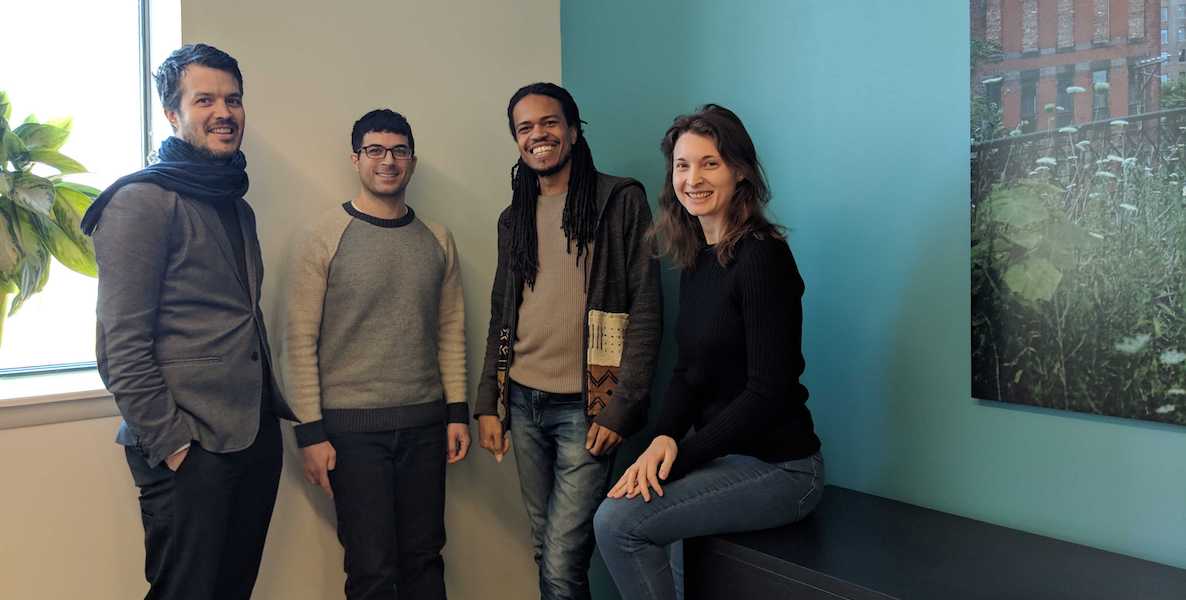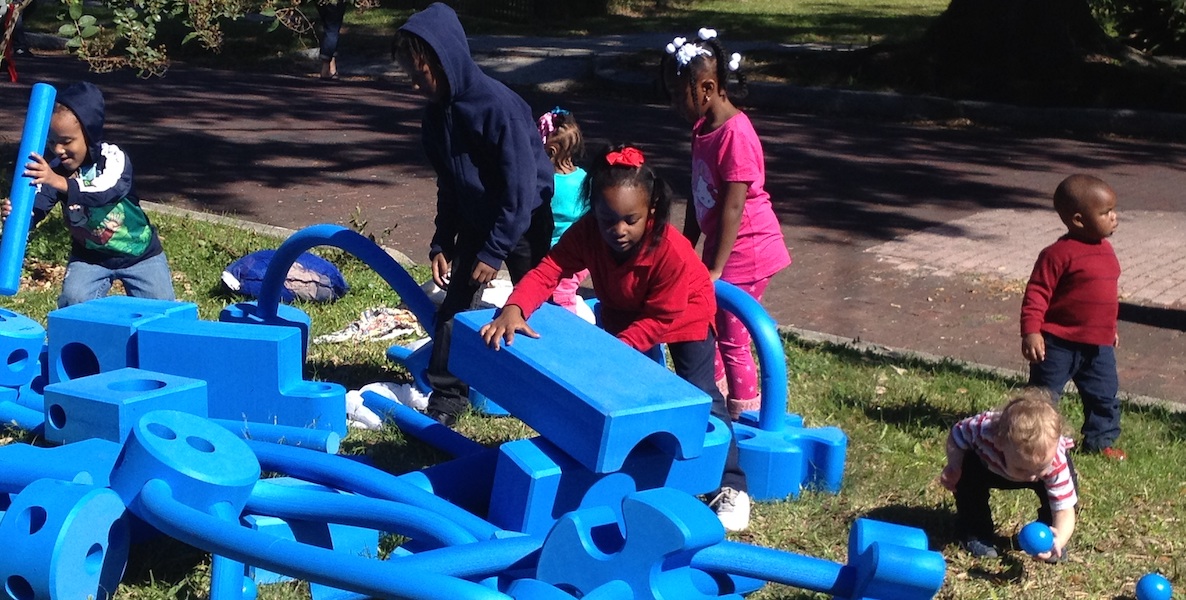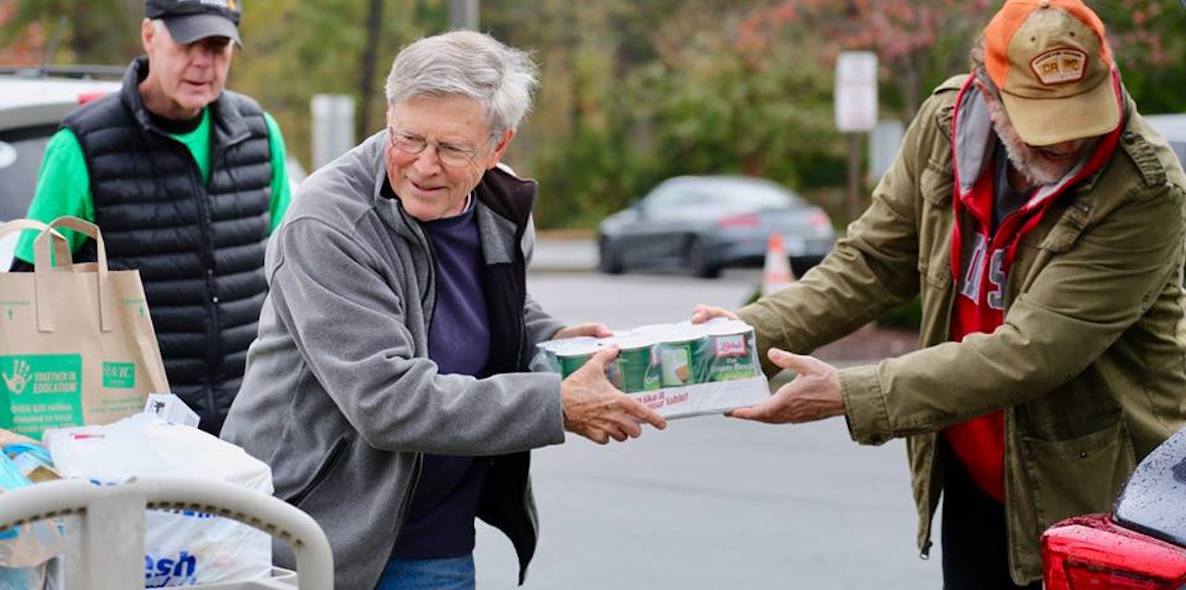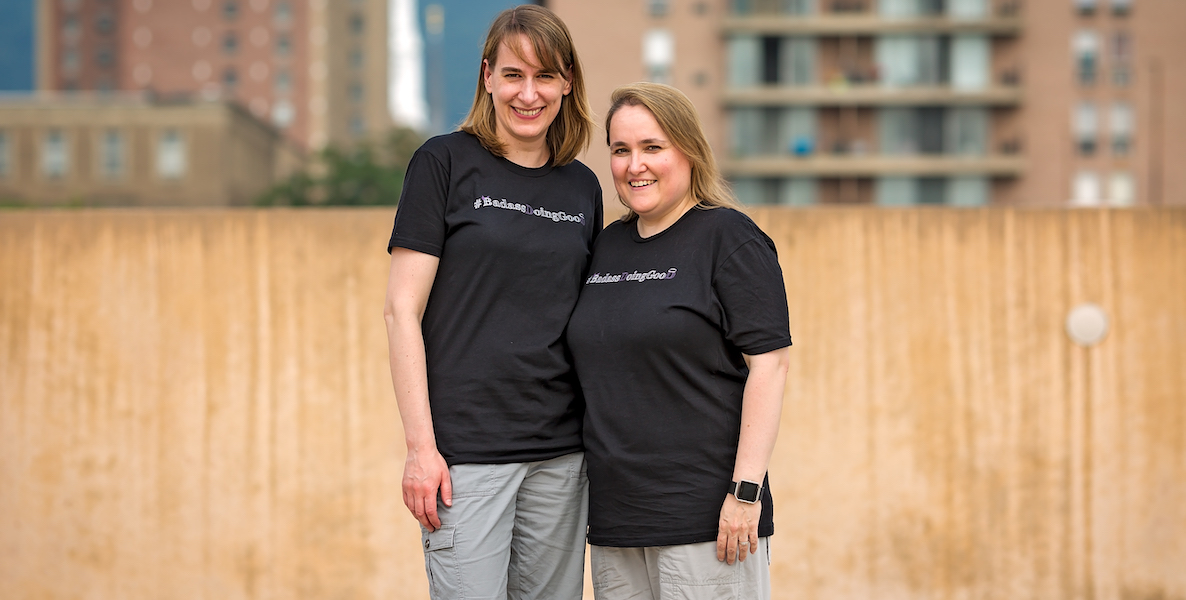When Karen showed up at a domestic violence survivor center in Camden in the late spring of 2014, all she had were the clothes on her back. Her abusive partner had bleached all of her other belongings.
At the center, Karen (not her real name) got help with counseling, a list of resources to get her on her feet, advice on getting financial assistance. Then, before she left, a social worker asked her one more question:
“What size bra do you wear?”
Taken aback, Karen fell silent. So the social worker led her to a storage room, where she saw something she never expected: a collection of new bras in a range of colors, fabrics, and sizes. She told Karen to take whichever ones she wanted.
The bras—along with an inventory of tampons, pads, and panty liners—came courtesy of Distributing Dignity, a South Jersey nonprofit started by Joanie Balderstone and her wife, Rebecca McIntire. As seemingly mundane as bras and drugstore items may seem, for Karen, they sent an important message of compassion and hope.
On her way out of the clinic, Karen turned to the social worker and said, “Thank you for your help and the resources.” Then she looked at the bra and added, “Now I can leave feeling like a woman.”
Distributing Dignity has 70 partners across 52 cities. Between 2015 and 2018 they distributed more than a half million feminine hygiene products and just about 10,000 bras.
It’s that sense of self-worth that Balderstone and McIntire are seeking to provide to any woman who needs it.
The idea came to them back in 2010. The couple had just donated workwear to a homeless shelter in Camden for women who were going on job interviews or back into the workforce. While at the center, one of the clothing recipients approached Balderstone.
“She said ‘Thank you for the suit—but I don’t have a decent bra to wear underneath it,’” Balderstone recalls. So Balderstone asked what else she might need and wasn’t getting. The answer: pads, tampons, and liners. “As a two-woman household, Rebecca and I couldn’t wrap our heads around the idea of not having those products,” Balderstone says.
Give some dignityDo Something
The couple got to work, hosting a “mardi bra” party for which friends and family were asked to bring new bras for the homeless shelter—emphasis on new. “People would ask if we’d accept gently-used bras, but I really wanted to give them something new,” Balderstone says. She wanted them to feel worthy of something special just for them.
At the party, they rounded up 80 bras and thousands of tampons and pads. The next year, they held another party, expanding their reach to agencies that helped young women aging out of foster care and families impacted by HIV and AIDS. By 2014, they had registered as an official 501c3 nonprofit and held a party that yielded enough goods for 12 organizations.
Now, Distributing Dignity has 70 partners across 52 cities. Between 2015 and 2018 they distributed more than a half million feminine hygiene products and just about 10,000 bras. Depending on where the organizations are located, Balderstone and McIntire will either ship inventory from New Jersey, or facilitate a connection between a local organization that’s rounding up items and an agency in need. (In Philly, Distributing Dignity partners with Sunday Breakfast Rescue Mission, DePaul, The Sunday Love Project, and Valley Youth House.)
“The donations from Distributing Dignity are like a blessing,” Mancayo says. “Many women would rather buy milk and eggs for their children than use their money to buy hygiene products.
The organization is still volunteer-run (McIntire works full-time in project management; Balderstone works part-time running a friend’s private law practice), though the women now have a warehouse space in Cherry Hill for inventory, a van that helps them personally make deliveries in crisis situations like last year’s hurricane in North Carolina, and the support of women, and men, worldwide.
Their research has revealed that not only are new bras and feminine hygiene products often in short supply at women’s and family agencies, but the lack of access to both has a measurable trickle effect. Girls in Camden, Balderstone says, for whom education is a ticket to a better life, often miss school because they don’t have proper hygiene products. “To deprive these young women of that education because they don’t have access to products is really unforgivable,” Balderstone says.
Articles by Jessica PressRead More
New mothers in Camden, where the infant mortality rate is the highest in the state, often miss crucial postnatal appointments because they don’t have products. Jeey Moncayo, a social worker at Southern New Jersey Perinatal Cooperative (SNJPC) who works with African American and Hispanic women to improve health outcomes for them and their babies, says that new moms have revealed to her that, against doctor’s warnings, they often dangerously co-sleep with their newborns because—without proper bras—they’re leaking so much milk that it’s just easier to have the baby with them in bed for nursing.
“The donations from Distributing Dignity are like a blessing,” Mancayo says. “Many women would rather buy milk and eggs for their children than use their money to buy hygiene products. And a beautiful bra humanizes someone who is going through a time of need. The effort, the love, that Distributing Dignity puts into thinking of every woman in a positive way is nothing short of empowering. It’s beautiful, and I cannot imagine doing my work without them.”
And Balderstone and McIntire only want to do more. “If the need is in all 50 states, we want to be in all 50 states,” Balderstone says. Financial donations could aid in making that possible, allowing Balderstone to work full-time for the cause. But product donations are just as important.
“This is about more than products,” Balderstone says. “It’s about sending a message to each of these women that she’s worth it, and that there are people who want the best for them. When we validate one another and send the message that we’re worth it, I don’t think it gets any more powerful than that.”
Photo via Distributing Dignity







